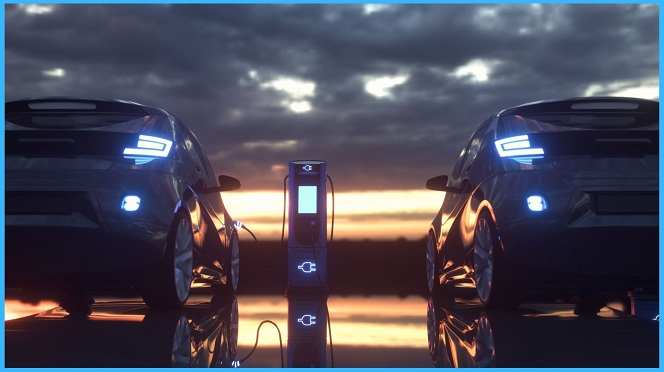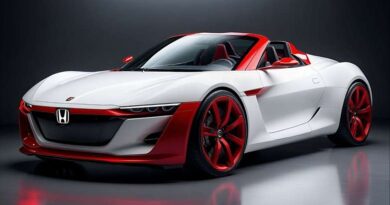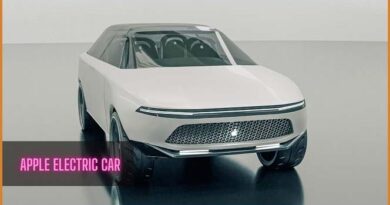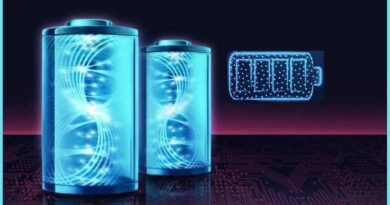Korea Announced New EV Battery Technology
Korea Announced New EV Battery Technology
There will likely be a storm of electric vehicles in wealthy nations as automakers and governments promise to increase production.
Experts estimate that by 2030, there will be 145,000,000 electric vehicles on the road.
It’s also widely acknowledged that electric vehicles have the potential to aid in the fight against pollution. Significantly, however, their batteries are limited in terms of technology.

In recent years, numerous battery-related innovations have emerged. Unfortunately, they have not yet achieved the same level of general use as lithium-ion batteries.
Improvements to lithium-ion batteries are impossible?
Researchers from a Korean university have lately revealed a major development in lithium-ion batteries. So what did these researchers do? And what does this mean for the entire EV industry?
New lithium-ion battery development by Korean researchers just shot the entire EV industry.
Let’s talk about lithium-ion batteries and why they aren’t as efficient as we want them to be. With the rise of the popularity of electric vehicles, concerns have been expressed about our ability to manage the potential drawbacks of lithium-ion batteries.
We all know how slowly lithium-ion batteries charge.
What exactly are lithium-ion batteries?
The lithium-ion battery is a type of rechargeable battery used in modern electronics, and the electrochemistry and operation of this battery rely heavily on lithium ions.
Lithium-ion batteries, which are among the most common rechargeable batteries, offer a significantly higher energy density than other types of batteries.
That means they are capable of storing significantly more energy than standard batteries.
Furthermore, they feature a slow discharge rate, which increases their charge storage capacity. Lithium-ion batteries aren’t found in EVs.
They power everything from laptops and smartphones to cameras and wearable tech.
Likewise, they see extensive use in the fields of defense and space travel. Unlike other battery types, lithium-ion batteries take a long time to charge.
Battery specification
How long it takes to fully charge an electric vehicle’s battery will vary greatly depending on factors such as the charging station, sufficiency, the remaining battery life, and the weather.
It would take anywhere from eight to 12 hours to fully charge the greatest capacity Tesla Model Three at home, using a high-powered adapter.
On the other hand, supercharger stations can accomplish the same thing around a quarter of the time. An empty battery charged for the first 80% in around half an hour.
However, the final 20% takes precisely the same amount of time. Because of the excessive charging, the total life span of the battery has been reduced.
So when charging stations realize the battery is about to fool, they begin reducing power.
It may seem like an inconvenience, but this deceleration is for your protection, and make sure your EV battery lasts as long as possible.
Now, increasing the battery’s temperature dramatically raises the risk of an explosion.
Cooling layers are weaved into battery packs, but they can only do so much to counteract the heat produced by charging.
Right now, DC quick charging stations are the most efficient way to power up an electric vehicle. Although Tesla superchargers are the most well-known option in this respect.
There are other fast charging options available as well. But as we all know, there are many easy manufacturers out there, and not all of them have superchargers.
Hybrid lithium-ion battery
That is what led a Korean university to develop something new. The Korea Advanced Institute of Science and Technology, or KAIST, has created something truly remarkable.
They have created a lightning-fast charging hybrid lithium-ion battery. With high energy storage capacity, the quick-charging battery has numerous potential applications, including in all-electric automobiles, drones, and other high-tech gadgets.
In addition, lithium-based batteries are more compact and lighter than their counterparts. Plus, they help shrink gadgets like smartphones, tablet computers, and wearable tech.
However, their slow charging times have been a challenge, notably in the field of electric vehicles. That’s because rapid charging reduces the maximum capacity and power output of lithium-ion batteries.
Moreover, batteries can spontaneously ignite if their packs become damaged from repeated exposure to high temperatures and pressures during charging.
The Korea Advanced Institute of Science and Technology research team has reportedly created a hybrid lithium-ion battery.
They made use of a custom-built positive electrode and a negative electrode.
- The cathode was fabricated using a specialized resin, which endowed the electrode with a Multipairisconductive hollow carbon nanostructure.
- The cathode, which features microscopic holes, has a surface area around twelve times that of standard carbonized resin, and through its surface, it can efficiently absorb and release ions.
- Additionally, germanium-embedded hollow carbon nanospheres were utilized in the anode production.
- The goal was to maximize the distribution of lithium ions while minimizing deterioration.
- The energy density and output of the hybrid lithium-ion battery with the unique electrodes were comparable to those of standard lithium-ion batteries.
Now, fast charging the new battery took only a few minutes.
How much power it could hold
In a press release on April 21, KAIST researcher Kang Jungku revealed that the hybrid lithium-ion battery can provide up to 22 600 watts per kilogram of electricity and 285 W hours of energy per kilogram.
He also claimed that it would significantly advance existing energy storage technologies. In his opinion, the new hybrid battery’s usefulness extends to any electrical gadget, including EVs.
Another team of KAIST researchers has created a catalyst for converting diesel into hydrogen, opening the door to practical applications in portable fuel cells.
They created a highly active and long-lasting reforming catalyst that works to produce hydrogen from commercial diesel. But of course, that’s something we can get into in a separate article.
There are also thousands of companies doing their research and development of batteries. The good news is that as battery technology advances, charging times should improve with it.
one exciting new technology is the use of supercapacitors, which allow automobiles to rapidly recharge their batteries while parked.
However, this depends on installing charging stations along the routes. Since a capacitor’s energy storage capacity is much lower than a real battery, we would likely be looking at hybrid designs at most.
Graphene is another promising material beginning to show up in fast-charging consumer gadgets. It works. By expanding this to electric vehicle batteries, charging times can be streamlined without any additional infrastructure investment.
However, even with regular battery replacements, the core battery technology wouldn’t alter much other than introducing graphene as a primary component.
Solid state batteries
Represent an even additional significant paradigm lead in battery technology.
These have been studied for quite some time, and while they haven’t made it to store just yet, the potential is enormous.
Now, weight and consistency are not issues with solid-state batteries. That means they might tolerate a faster charge without overheating, a problem common to conventional batteries with liquid electrolytes.
we hope this helps shed light on the issues around EV charging times. And while the weight may be annoying, it helps batteries last longer and offers peace of mind.
Finally, as battery technology advances, EV charging times will undoubtedly decrease in the not-too-distant future.
So what do you think of this new lithium-ion battery technology from the Korea Advanced Institute of Science and Technology?
Do you hope it will be used in all-electric soon?
Make sure to let me know what you think in the comments section below.



